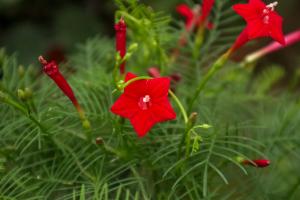How to Dechlorinate Tap Water for Plants
Chlorine is a common disinfectant used in tap water that can be harmful to plants. Although it is safe for human consumption, chlorine can cause plant leaves to turn yellow, stunt growth, and even kill the plant. To ensure that your plants are receiving pure, healthy water, it is important to dechlorinate tap water before giving it to them. In this article, we will discuss various methods of dechlorinating tap water for plants.
1. Letting Tap Water Sit Overnight
One of the simplest and most effective ways to dechlorinate tap water is to let it sit at room temperature for at least 24 hours. As chlorine is a gas, it will evaporate from the water as it sits, leaving the water free of chlorine. This method works best for small quantities of water, as a large volume may take longer to dechlorinate.
2. Boiling Tap Water
Another effective method of dechlorinating tap water is to boil it. Boiling tap water for 15-20 minutes will evaporate the chlorine, leaving the water safe for plants. However, this method can be time-consuming and may not be practical for large volumes of water.
3. Using Vitamin C
Vitamin C, also known as ascorbic acid, can be used to dechlorinate tap water for plants. It is a powerful antioxidant that neutralizes chlorine, making it safe for plants. Simply add a small amount of vitamin C powder to your water, and stir until it dissolves. This method is effective and simple, but you should be careful not to overdose on vitamin C, as it can be harmful to some plants.
4. Filters
Several types of filters are available that can remove chlorine and other impurities from tap water. Activated carbon filters, for example, are commonly used to remove chlorine and other chemicals from tap water. Reverse osmosis filters are another popular choice, as they remove up to 99% of all impurities from water. Using a filter is a great way to ensure that your plants are receiving pure, clean water.
5. Rain Water
Rainwater is a great natural source of water for plants as it is free of chemicals and contains minerals that are beneficial to plant growth. Collecting rainwater is easy and can be done with a simple rain barrel. However, it is important to note that rainwater may contain harmful pollutants, such as sulfur dioxide, nitrogen oxides, and other chemicals, depending on your location. Therefore, it is essential that you have your rainwater tested before using it for plants.
Conclusion
By dechlorinating tap water, you can ensure that your plants are receiving pure, healthy water free of harmful chemicals. Whether you decide to let tap water sit overnight, boil it, use vitamin C, or invest in a filter, there are several methods available to dechlorinate tap water for plants. By considering the various options and testing which method works best for you and your plants, you can have a beautiful and thriving garden.

 how many times do yo...
how many times do yo... how many planted tre...
how many planted tre... how many pine trees ...
how many pine trees ... how many pecan trees...
how many pecan trees... how many plants comp...
how many plants comp... how many plants can ...
how many plants can ... how many plants and ...
how many plants and ... how many pepper plan...
how many pepper plan...































